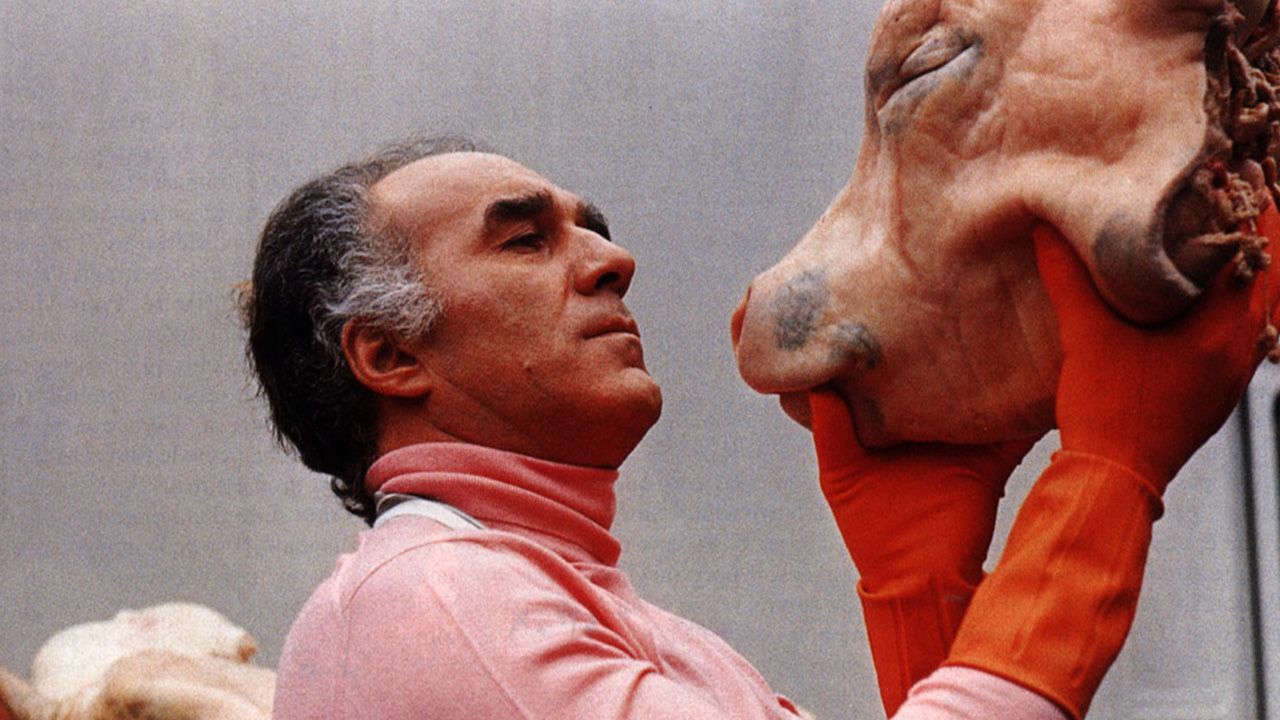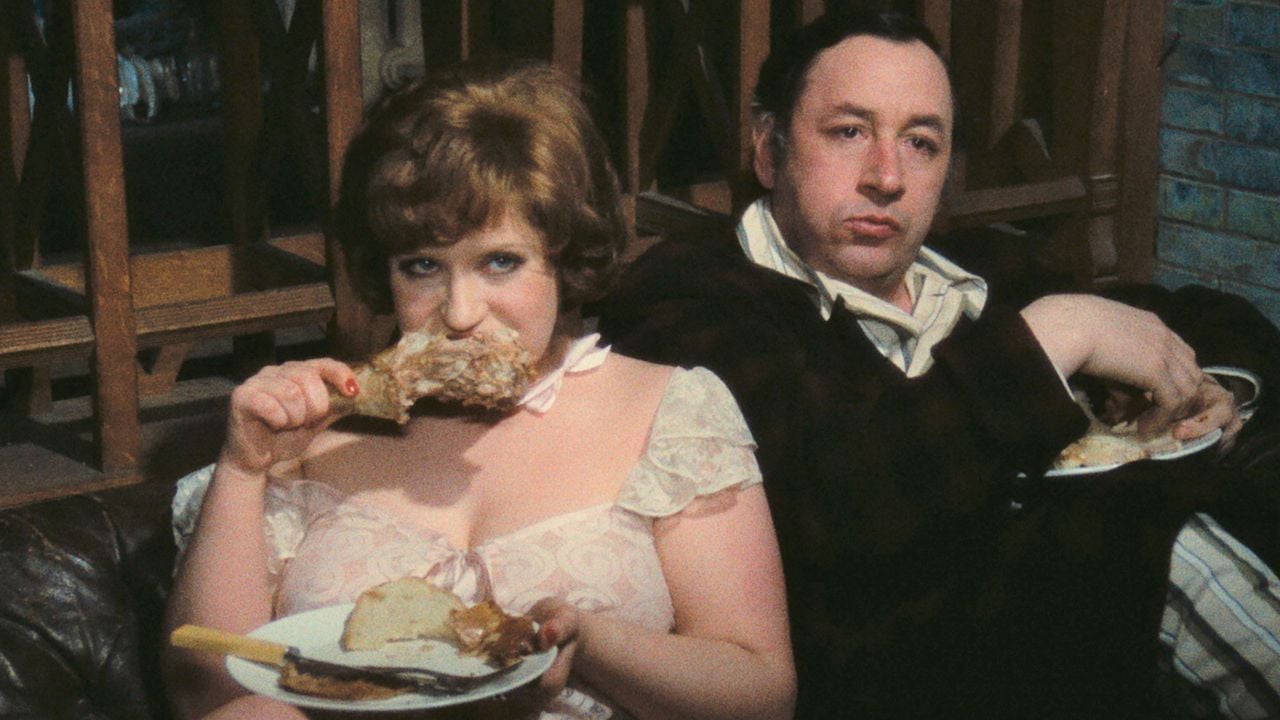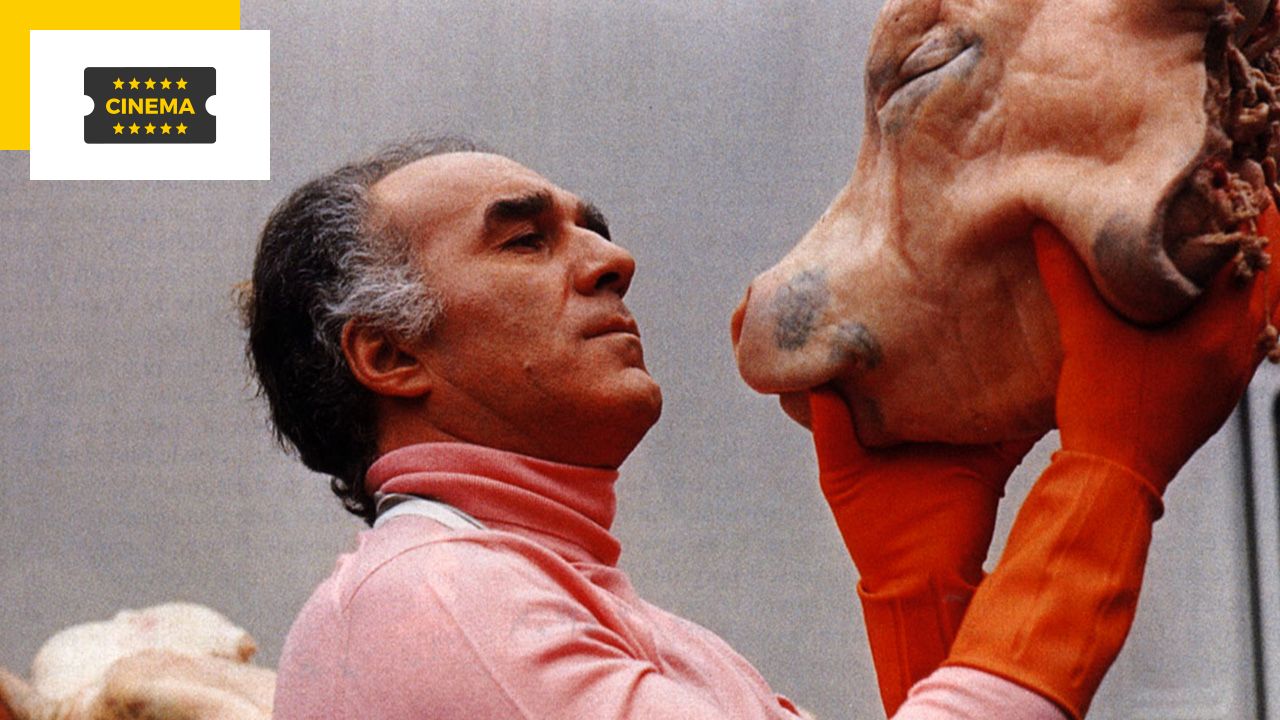Just 50 years ago, on May 23, 1973, La Grande bouffe returned to French cinemas in a restored version.
Directed by Marco Ferreira, the work tells the story of four friends who retire to a private mansion in Paris. Food shipments were kept for the “gastronomic seminar”. Hugo, the restaurateur, Michele, the director, Filipe, the forensic magistrate, and Marcello, the airline pilot, all four seem to be in great spirits.
However, a dark purpose animates them. The most diverse dishes follow each other on their table without time. The quartet is literally drowning in food. Three prostitutes and a neighboring teacher helplessly watch the gruesome orgy and the inevitable progress of death on the overwhelmed faces of the guests.
Back cover of LA GRANDE BOUFFE
Marcello Mastroianni, Philippe Noiret, Michel Piccolli and Hugo Tognazzi, La Grande bouffe was violently criticized when it was screened at the 1973 Cannes Film Festival. The film caused one of the loudest scandals on the Croisette.
This pitch-black dramatic comedy was banned for under-18s when it was released in France. An absolutely raging brochure of consumer society, La Grande bouffe left its mark on the era with the brutality of its subject matter and the radicalism of its staging.
Like Luis Buñuel, Marco Ferrer explores the vices of the bourgeoisie of the time with a carnivorous humor reminiscent of the irony of Pier Paolo Pasolini (Salo or 120 Days of Sodom).
Ferrer’s satire, which likes to insult bourgeois morality by depicting its vices, is a brutal indictment of consumer society, waste, selfishness, the destruction of human flesh, power, commerce. It does not eat to live, but lives to eat, a society preoccupied with its only pleasures (sex and faces), selfish and indifferent to the outside world.wrote critic Vincent Teixeira in 1973.
“A metaphorical indictment against the death and decay of this society, also related to a dimension that is both physical and metaphysical, on themes of food, death, shame, but also confinement, loss of ideals, boredom, anxiety, loneliness.” “– added the academician.

Obscene and scatological
For his part, Télérama’s Claude-Marie Tremois didn’t like Marco Ferrer’s humor at all: “Vulgar and scatological, with a self-satisfaction that will make you want to vomit, this is a patient film that mocks the audience so much that only the awkwardness that greeted it and its co-stars when they left the screening.He hammered.
Jean Cau of Paris Match also vomited on the film: “Shame on the producers, shame on the actors who agreed to sink, sick in the kind of mud that will never stop sticking to their skin. Our colors. Shame, after all, on our age, whose weakness tolerates, finances, encourages, absorbs and swallows such a pile of excrement.”– the journalist was indignant.

François Challet, a special correspondent for Europe 1 at the time, exclaimed that the Cannes Film Festival knew “His most humiliating day and France, her greatest humiliation!”
After the screening of the feature film, the actor Andrea Ferreoli takes the audience to task, who taps him in the arm to make him feel ashamed of being French after seeing the film. One man even shouted during the skin show: “You just have to piss us off now”Narrated by Guillaume Evin What a scandal! 80 movies that shocked their time in Editions de La Martinière.
“A film that gives us an apocalyptic vision due to the excesses of decadence (it is full of scenes of vomiting, farting, masturbation or fellatio, the bulimic contest is both sexual and food) is hardly comforting and managed to sow a lot of fear in the well. – meaning”Analyzed in 2003 by Trudy Bolter, professor emeritus at the Institute of Political Studies in Bordeaux and author of books on cinema.
Despite the controversy on the Croisette, La Grande bouffe was crowned with the FIPRESCI prize (International Critics’ Prize), tied with Jean Eustace’s La Maman et la Putain. Despite its ban on under-18s, the feature film was a success in France with 2.4 million viewers.
Source: Allocine
Rose James is a Gossipify movie and series reviewer known for her in-depth analysis and unique perspective on the latest releases. With a background in film studies, she provides engaging and informative reviews, and keeps readers up to date with industry trends and emerging talents.


![Such a wonderful sun in advance: Summary of the Episode of Friday May 9, 2025 [SPOILERS] Such a wonderful sun in advance: Summary of the Episode of Friday May 9, 2025 [SPOILERS]](https://fr.web.img3.acsta.net/img/64/3e/643eee90358f278b5b6ba954f85d645b.png)


